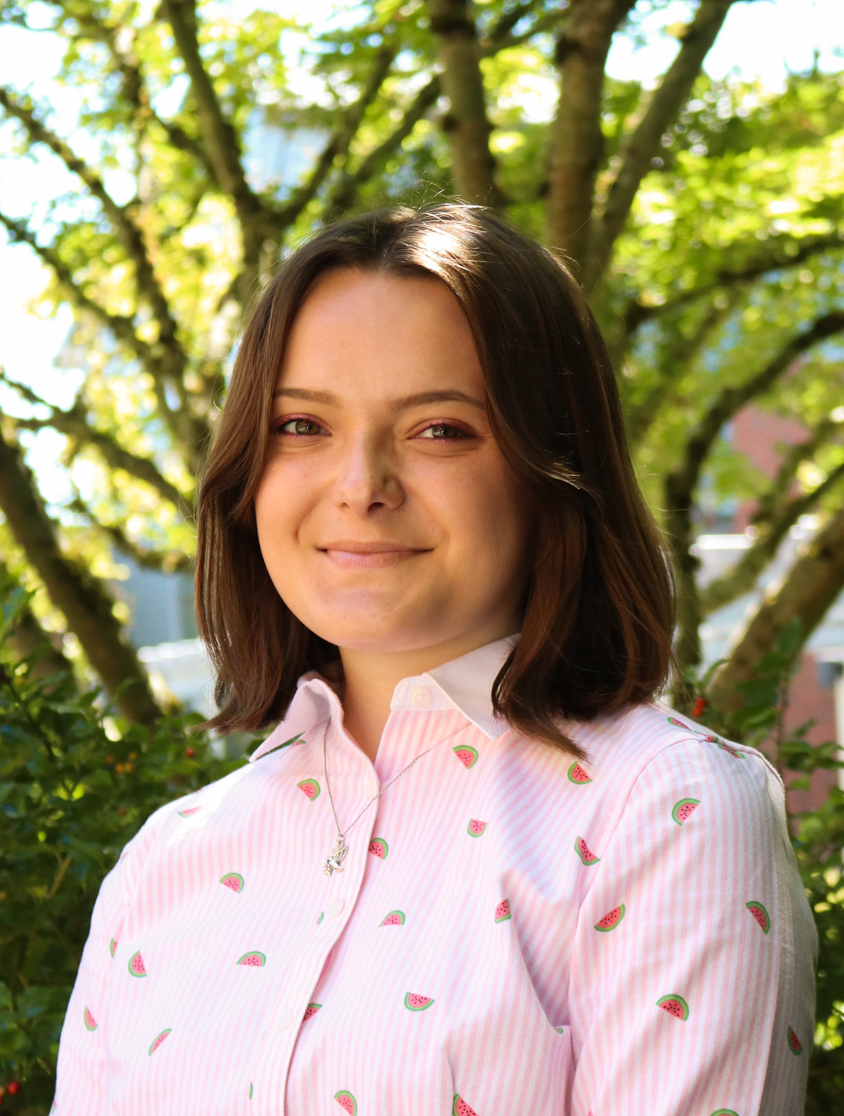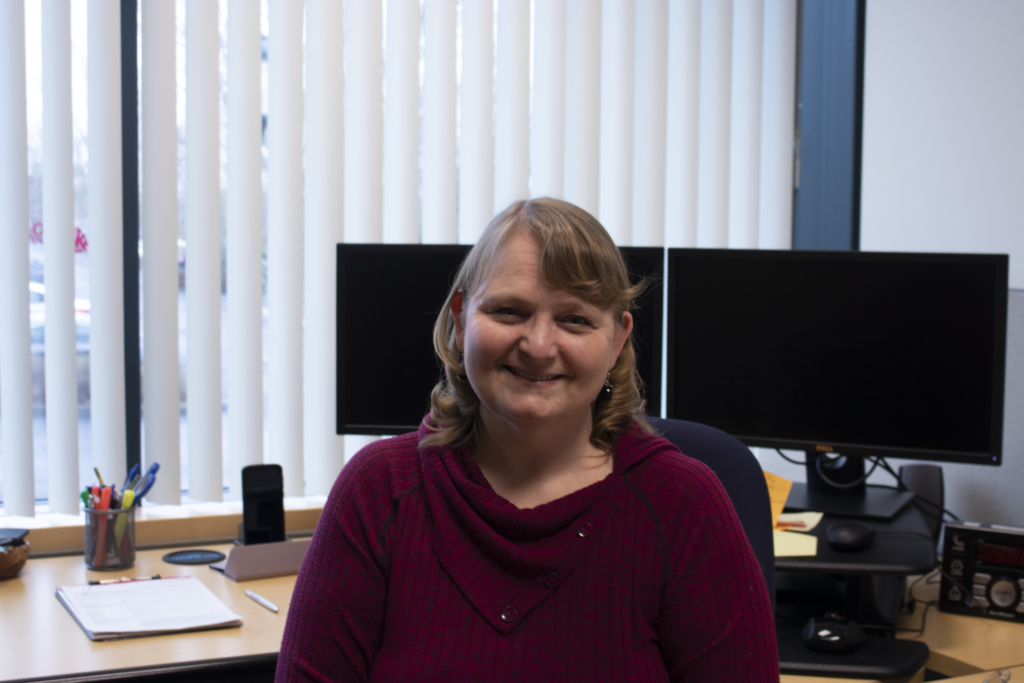Institutions of higher education in Washington are required to provide reasonable accommodations to students with disabilities, to ensure they have equal access to college resources. WSU Vancouver students with physical or learning challenges, utilize the Access Center on campus for assistive resources.
LaRonda Zupp became the coordinator of the Access Center in 2018 and meets with students who request assistance in their learning environment. Zupp identifies deaf and is aware of her own challenges when approaching student needs. She explained that she is thankful to be in this department and that she is fit to help students with disabilities, because she understands their challenges.
“As a deaf person, I go through challenges and frustrations that people with disabilities experience every day,” Zupp said. “[I] come from a place of understanding and knowing from a framework of ‘nothing about us without us.’ So I want to be able to say it takes somebody in the role to understand that and empathize.”
Zupp conducted a Building a Community of Equity program, “Deaf 101” presentation earlier this year. According to BaCE, the programs provided are for staff, faculty and administrators to enhance campus operations through skill-building or group discussions.
In her presentation, Zupp discussed what it means to be part of the deaf community, understand diversity within deaf culture and remove social barriers of communicating with deaf individuals to achieve success in the workplace. She covered different labels including: deaf, hard of hearing, late-deafened, deaf-blind and deaf+. She explained that the terms “hearing impaired” and “hearing loss” are terms that should not be used.
“There is a diversity within the deaf community, so we are not a homogeneous group,” Zupp said. “There is a culture, and a way to treat or communicate with and about a person who is deaf.”
Zupp said there is an access team who mandate testing alternatives, provide document conversions for screen readers, participate in classroom note-taking, supply closed-captioning material and act as real-time interpreters for students. Zupp explained the first step to getting accommodations is to visit the Access Center website. After an appointment, she determines what services meet a student’s needs best.
“[They] talk about their story, their story matters, it’s part of a very interactive process in discerning what accommodations they qualify for,” Zupp said.
In response to WSU Vancouver being accessible for students’ mobility, especially those who use wheelchairs, Zupp explained that she wishes campus was more “mobile-friendly.”
“We have a lot of issues: hills, inclines, bumpy roads, asphalt, buttons and door handles. The American Disabilities Act Law has specifics about what is required, so far we are within the compliance the ADA law covers. But, there’s still those frustrations. Things break and they don’t work, so we have procedures to inform different parts of campus. Those work order [procedures] are replacements, but there’s still high need, we have a long way to go,” Zupp said.

Joseph Pyles, a senior integrated strategic communication major, often uses a wheelchair, a prosthesis or a mobility cane to navigate campus grounds. He explained that managing time is a major factor in his daily life, frequently planning transportation to campus, as well as attending classes.
“I’m a person who is blind, and a person who is missing their right leg. If you want to be technical, I tell people I have no light perception, basically a way of saying I’m completely blind. And I use a wheelchair, pretty often anymore. I also have a prosthesis and a cane,” Pyles said.
“The way I sort of frame the challenges I face each day, really come down to time.”
Pyles is an employee in the Writing Center and currently sits as a student representative on the Accessibility Council. He plans to communicate with Associated Students of WSU Vancouver to pass student resolutions related to improving equity and accessibility on campus.
“You know, just like any sort of identity label you want to put on it, disabled people aren’t a monolith. My situation is totally different from somebody else who might have maybe [a] missing limb or somebody else who might be totally blind. It’s really quite a range, and so part of my position is sort of trying to speak to that, and be somebody who’s personally familiar and acquainted with what some of those challenges might be.” – Joseph Pyles
Pyles explained that the university being technically in adherence “to code,” is not always what is best for students, especially those who may have multiple disability statuses and need additional accommodations not met by ADA laws.
“But what ‘to code’ is, is not universal design. ‘To code’ is not always accessibility and equity at all. ‘To code’ means that there is a way, and I think the campus is certainly ‘to code,’ but it’s not equitably accessible to everybody. I think the only way that ADA regulation and code changes is when people speak up about it. That’s the only time the line ever moves, is when it’s forced to move,” Pyles said.

Pyles added that the Access Center employees are diligent when assessing student needs and have been helpful to him.
“Largely I do, I think it depends on who you’re talking to. Certainly, I think LaRonda has been doing an amazing job since she’s been here. The other people who work in there work really hard,” Pyles said. “I think campus is pretty open to peoples’ needs and various challenges with some exceptions.”
Abby Griffith, a senior human development major, explained that she feels well-accommodated on campus. She does, however, spend most of her time maneuvering BlackBoard and other technological challenges when completing schoolwork.
“I get the support I need as a blind person, and I feel like if I need any kind of help I can just walk in and they are always available to answer my questions,” Griffith said. “I spend a lot of time navigating BlackBoard more than doing work, but [the Access Center] gives me PowerPoints, or textbooks or articles whenever I need it.”

Another student who uses the Access Center is Katya Farinsky, a junior digital technology and culture major, to accommodate her service dog, Lanie. She was paired with Lanie in 2015, and has to present annual documentation to the Access Center to confirm her accommodation needs.
“There’s a lot of documentation that’s needed for it, and not necessarily for her as a service animal, but for me on my end to prove that I do have what qualifies as a disability, and that I need that support on our campus,” Farinsky said.
Farinsky explained that she may not need or utilize the Access Center as much as other students do, but she appreciates their presence.
“My experience on campus has been overwhelmingly positive, and I love that we have the Access Center, I love that we have all these resources for students. They’re almost like that background support for me, just to get me through my classes,” Farinsky said.
The Access Center can be found in the Student Wellness Center, located in the Classroom Building at WSU Vancouver. They offer a variety of services and resources that can be utilized by students who seek accommodations at any time during the school year.

Olivia is a senior studying English at WSU Vancouver.
